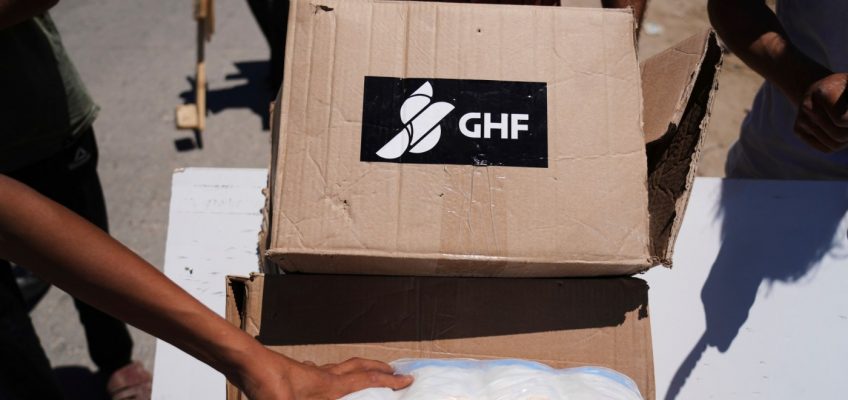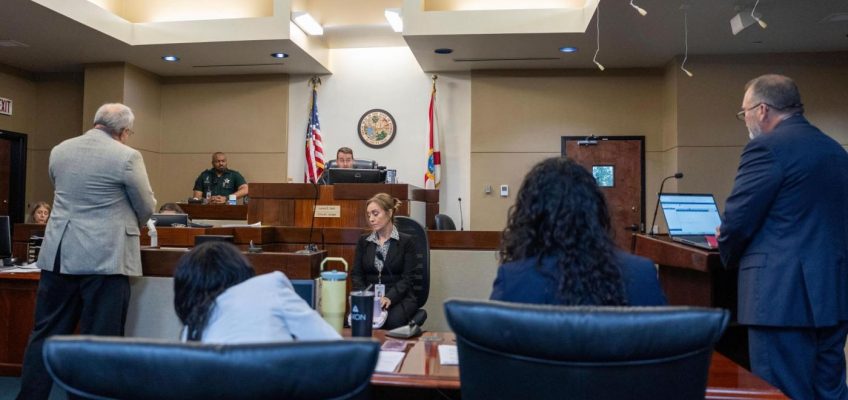By JIM MUSTIAN and SARA CLINE
BATON ROUGE, La. (AP) — Three current or former Louisiana police chiefs were arrested following a federal investigation into an alleged scheme that involved false police reports being sold to immigrants lacking permanent legal status and used to try to secure a visa, authorities said Tuesday.
The forged police reports would indicate that the immigrant was a victim of a crime, U.S. Attorney Alexander C. Van Hook said at a news conference in Baton Rouge. He said the police officials were paid $5,000 for each name they provided falsified reports for, and that there were hundreds of names.
There had been “an unusual concentration of armed robberies of people who were not from Louisiana,” Van Hook said.
“In fact, the armed robberies never took place,” he said.
Van Hook and others said at the news conference that the arrest of the current or former chiefs and two other people doesn’t mean their police departments are corrupt.
Some crime victims, and their families, may be eligible for temporary visas — and, in some cases, a path to citizenship. About 10,000 people got these “U-visas” in the 12-month period ended Sept. 30, 2022, the latest period for which the Homeland Security Department has published data.
These special visas are specifically for victims of certain crimes “who have suffered mental or physical abuse” and are “helpful to law enforcement or government officials in the investigation or prosecution of criminal activity,” based on a description of the program published by the U.S. Citizenship and Immigration Services.
Two of the police chiefs had been arrested as of the Wednesday morning news conference, authorities said.
Lester Duhé, a spokesperson for the Louisiana attorney general’s office, said that office was assisting federal agents with “court-authorized activities” when asked about its role in the case.
The current or former police chiefs are from small central Louisiana municipalities that are near each other. They’re in a part of the state that is home to multiple immigration detention facilities. Although Louisiana doesn’t share a border with a foreign country, there are nine ICE detention facilities in the state — holding nearly 7,000 people.
Local news outlets reported seeing ICE and FBI agents entering the homes of two of the chiefs.
Additional details about the investigation, arrests and the alleged scheme were not made available.
Related Articles
Florida State student accused in a mass shooting is set to go to trial in November
Meta CEO Mark Zuckerberg expected to testify in $8 billion Facebook privacy lawsuit
US stocks drift after an encouraging report on inflation
US producer prices unchanged with wholesale inflation remaining under control
US deports immigrants from Jamaica, Cuba, and other countries to the African kingdom of Eswatini
In 2021, the U.S. Citizenship and Immigration Services warned that the U-visa program was susceptible to fraud after an audit from the Office of Inspector General found they had not addressed deficiencies in their process.
The audit found the agency approved a handful of suspicious law enforcement signatures that were not cross-referenced with a database of authorized signatures, according to the OIG report. They were also not closely tracking fraud case outcomes, the total number of U-visas granted per year, and were not effectively managing the backlog, which led to crime victims waiting for nearly 10 years before receiving a U-visa.
Associated Press writer Valerie Gonzalez contributed to this report from McAllen, Texas.




